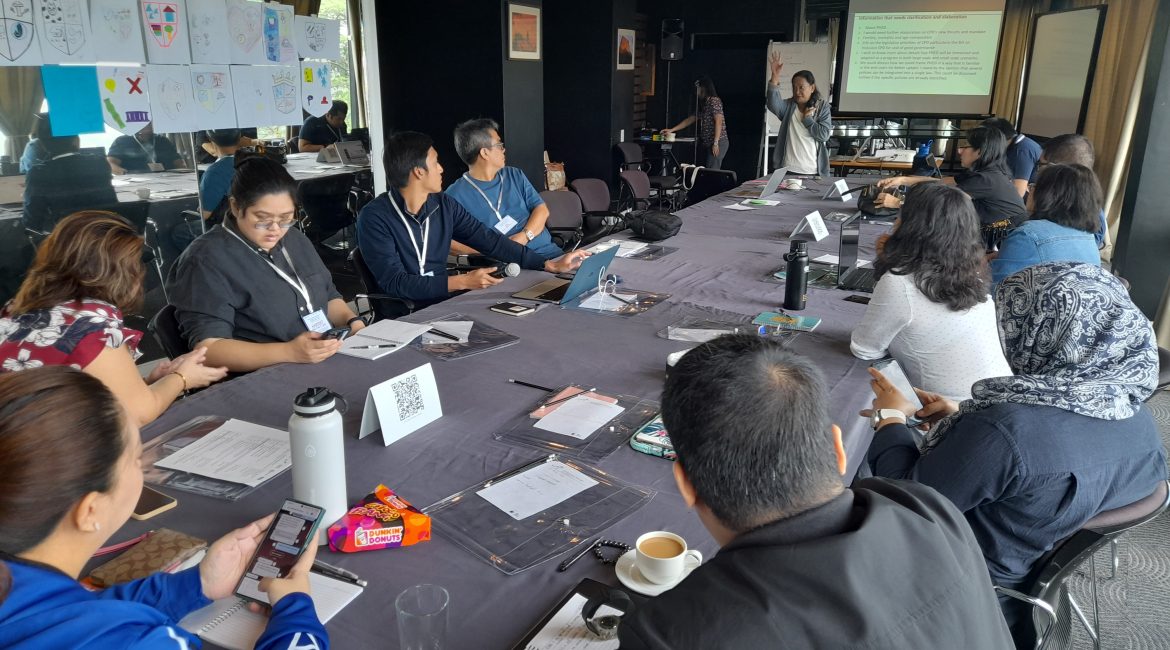BUILD Project conducts a PHED legislative advocacy training for Congress staff.
BUILD or Building Capacity for Integrated Family Planning and Reproductive Health (FP/RH) and Population, Environment and Development (PED) Action is a five-year global project supported by USAID Washington. The project is implemented by a consortium led by the African Institute for Development Policy (AFIDEP) with the following members: Leadership for Environment and Development Southern and Eastern Africa (LEAD SEA); PATH Foundation Philippines, Inc. (PFPI); FHI360; and Pan African Climate Justice Alliance (PACJA). Under a hubs-and-spokes model, the project covers Africa and Asia through its four hubs, namely, Côte d’Ivoire (West Africa), Kenya (East Africa), Malawi (Southern Africa), and the Philippines (Asia-Pacific), allowing for regional expansion through inter-country meetings and cooperation. PFPI leads the Asia-Pacific Hub from the Philippines.
BUILD seeks to address the interlinked population, health, environment and development (PHED*) challenges for sustainable development in low- and middle-income countries (LMICs) by: (1) strengthening individual and institutional capacity; and (2) increasing commitment to cross-sectoral PED approaches.
The project adapts the systems thinking approach for demonstrating interlinkages between society, the economy, governance, and the environment and specifically addresses key concerns related to population dynamics and voluntary FP/RH, climate change, biodiversity, resilience, livelihood, and food security, among other sectors, through five work streams:
- Evidence synthesis on the interlinkages between FP, population dynamics, the environment and climate change, livelihoods, the economy, and governance, ensuring that decisions and messages for advocacy and communication are anchored in sound evidence
- Policy reforms and institutionalization of PED integration at local, national, and regional levels
- Empowering multi-sectoral PED champions for voluntary FP/RH integration in policies and programs from the environment, climate change, conservation, food security, water, economics, education, and governance sectors, as well as the private sector
- Partnership-building among public and private institutions and communities for PED by identifying successful models of partnership and piloting them in different contexts
- Promoting South-South and regional exchange for mutual learning, knowledge sharing, and new perspectives discourse
All BUILD interventions also include strategies to improve gender equality and youth empowerment.
In the next three years, the BUILD Project will work toward the achievement of its goals through the following intervention areas:
- Promote PHED into global, regional, national and sub-national policies, programs and platforms. Aimed at promoting PHED into global, regional, national, and subnational policies, programs, and platforms, the BUILD Project advances evidence-informed advocacy, promotes technical assistance to ensure PHED implementation, and integrates PHED into global, regional, national, and sub-national climate change action, including private sector-led initiatives.
- Develop and nurture PHED leaders and champions. In its second year, BUILD co-created a PHED Leadership Program tailored to both gender and youth considerations. This program is designed to identify, train, and mentor a new cohort of PHED leaders who can also support expanding the PHED community of practice. The aim of the BUILD PHED Leadership Program is to enhance the capabilities of emerging PHED leaders by employing the positive youth development approach. The fellows will be established and equipped across the four hubs to advocate for PHED policies and initiatives that advance gender equity and positive youth development principles.
- Expand and amplify PHED voices, learning and collaboration. The purpose of this intervention area is to increase the visibility of PHED at sub-national, national, regional, and global levels through the active participation of the project and its champions on various cross-sectoral sustainable development platforms and networks. The channels include conferences, policy dialogues, symposia and webinars. The activities under this intervention area seek to build bridges and forge collaborations between the FP/RH communities and environment, biodiversity, climate change, resilience, livelihoods, food security, water, economic growth, education, democracy and governance sectors. Further, the activities are also designed to facilitate knowledge sharing, enhance policy communication, and create networks and communities of practice that can collaborate to bring more nuanced perspectives and solutions in the realms of integrated cross-sectoral PHED.
*More popularly known as PHE and also referred to as PED


